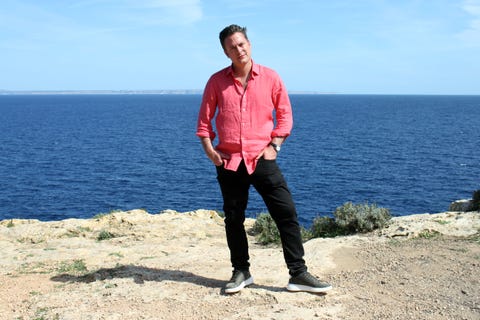River chief imprisoned for fishing fights for sacred rights – WDTN.com

THE DALLES, Oregon (AP) — Wilbur Slockish Jr. has been shot at, had rocks hurled at him. He hid underground for months, and then spent 20 months serving time in federal prisons across the nation — all of that for fishing in the Columbia River.
But Slockish, a standard river chief of the Klickitat Band of the Yakama Nation, would endure it all again to protect his appropriate of obtain to the river and the fish that his people imagine ended up bestowed to them by the Creator.
“It’s a sacred covenant,” he stated. “Nothing’s more critical.”
Tribal fishermen like Slockish have drawn the ire of professional and sport fisherman as nicely as federal government officials around the many years for engaging in an act of religion. For Slockish and his ancestors, who have inhabited the Columbia River Basin “since the starting of time,” stewardship of the land, the river and its fish, animals and plant life is a divine deal at the main of a millennia-previous spiritual practice. They’ve fished in the river not just to practice their religion, but also to eke out a livelihood.
Tribal fishing legal rights together the Columbia have spurred bitter, drawn-out authorized and legislative battles. This is despite an 1855 treaty with the federal govt stating that the tribes would cede most of their lands, but retain their fishing rights.
In April 1983, Slockish and four other fishermen have been convicted in U.S. District Court docket for providing salmon caught out of year to undercover federal agents in a sting that became acknowledged as “Salmon Scam.” Slockish was charged with illegally using 16 fish from the river.
Tom Keefe Jr., a Washington-based civil legal rights law firm who represented the fishermen in that scenario, claimed federal agents taken care of 40,000 salmon were lacking from the river but later on found out that the fish had migrated to tributaries because of pollution.
Keefe stated that for Slockish and the other fishermen, the battle to help you save the river and its assets has generally been about religious independence. A training Catholic, Keefe said representing the fishermen gave him a window into the non secular lives of the “river folks.”
“To them the Columbia River is a big cathedral that stretches from the mouth of the Pacific Ocean to the mountains of Canada,” he explained.
Slockish is “a person of integrity and determination,” Keefe added. His voice cracked with emotion as he described the instant the Klickitat main taken off his marriage ceremony band correct right before heading to jail, placing it in Keefe’s palm for safekeeping.
Slockish hasn’t stopped combating for the river. Immediately after his launch from prison, he concentrated his endeavours on water top quality and well being difficulties similar to the Hanford Nuclear Reservation in Benton County, Washington, which was decommissioned in 1989. The plant released considerable quantities of radioactive squander into the river, producing irreparable ecological damage.
For the past two many years, Slockish has created shows at regional elementary colleges all-around Thanksgiving about the religious significance of the river and its fish. He has represented the Yakama Nation on numerous river-linked commissions and committees and continue to serves on the Columbia River Inter-Tribal Fish Fee, which represents the tribes and their legal rights along the river.
Slockish and the other fishermen’s high-profile situation has served convey focus to their troubles and specified tribes improved accessibility to the river, claimed Jeremy FiveCrows, the organization’s spokesman.
The 20 months Slockish invested in prison “were hell,” but it is all about retaining a promise he made as a 14-year-aged — to the to start with salmon he at any time caught — to be a great steward of the land.
Slockish nonetheless recollects the way that fish looked him “dead in the eye” as if to say: “I’ve accomplished my work. Now you do yours.”
___
Affiliated Push faith protection gets support by means of the AP’s collaboration with The Discussion US, with funding from Lilly Endowment Inc. The AP is exclusively dependable for this content material.





